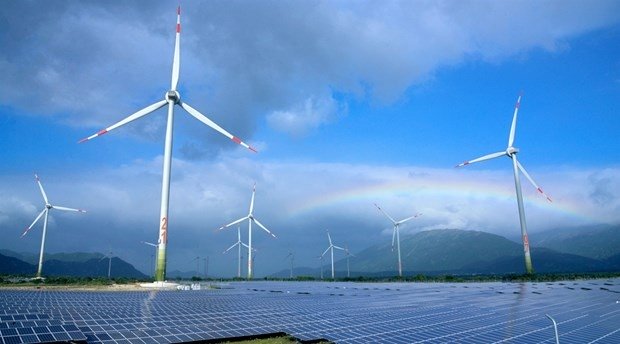
|
Given Vietnam’s high solar PV potential and ambitious green energy targets by 2050, the country has every opportunity to become a global leader in renewables, the Entrepreneur Magazine said on its e-version. |
|
Eric Chin, the author of the article published on entrepreneur.com cited the World Bank as saying that Vietnam currently has the most comprehensive installed solar power capacity in Southeast Asia, with 16,500MW generated in 2020. Moreover, Vietnam was among the top 10 nations globally, with the most solar energy capacity installed in 2020. There is also a compelling rationale for establishing wind energy projects in Vietnam due to evidence that it has some of the greatest wind resources in the region with a potential of 311 GW, according to the article. Market analysts believe that if Vietnam maintains its rapid expansion of renewable energy, it will rise much higher in the rankings, perhaps overtaking nations like Australia and Italy in renewable energy development and creative solutions. The climate and topography of Vietnam make renewable energy, particularly wind power, a significant investment prospect. Vietnam’s vast wind resource is thanks to the country’s long and narrow geographic shape consisting of over 3000 kilometers of coastline, including a mix of hills and mountains. According to the World Bank, more than 39 percent of Vietnam has wind speeds more than 6 meters per second (m/s) at 65 meters, equivalent to 512 gigawatts (GW) of capacity. Vietnam assumes excellent potential, with 8.6 percent of its land area suitable for large wind farms. Vietnam has recently seen phenomenal solar photovoltaic (PV) growth, which is just the beginning of the country’s vast energy transition away from coal. The country’s solar PV capacity increased from 86 MW in 2018 to about 16,500 MW in 2020. Consequently, Vietnam has surpassed Thailand as the ASEAN country with the greatest installed solar power capacity. Solar PV systems provide roughly 10.6 TWh of electricity in 2020, accounting for nearly 4 percent of total output. Rooftop solar will account for approximately half of Vietnam’s total solar capacity by 2030. With a promising solar energy production environment, international investors will have difficulty passing up such lucrative investment prospects, the author said. Source: Nhan Dan Online |
